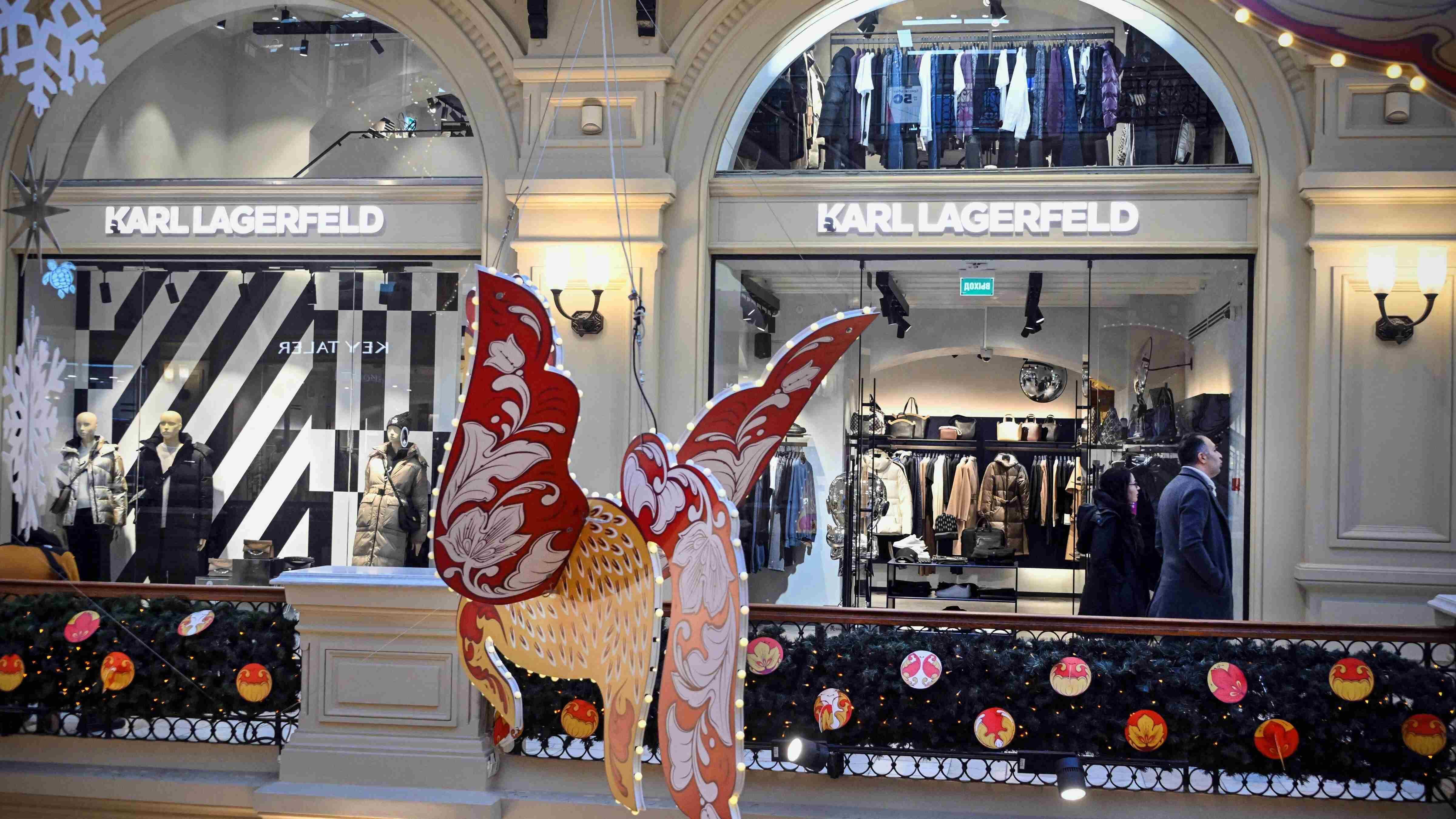
Despite a barrage of Western sanctions and swathes of brands quitting Russia after the Kremlin launched its Ukraine offensive, Moscow's most well-off shoppers are still spoilt for choice when it comes to luxury Western goods.
In the Russian capital's exclusive shopping quarters, department stores and high-end Russian outlets are doing a roaring trade in Western sports cars, gold jewellery and designer clothes.
The picture is a far cry from the West's claims that its sanctions would collapse the Russian economy and cut it off from the outside world.
Many in Moscow, including Russian President Vladimir Putin, have revelled in what they call the "failure" of sanctions to isolate Russia from the global economy.
The United States, European Union and Britain have explicitly banned the export of "luxury goods" to Russia as part of their sanctions packages.
Several brands and groups also voluntarily quit the market at the start of the offensive, including Chanel, Hermes, LVMH and Kering, amid a wave of corporate exits from Russia.
But almost three years later, their logos still adorn products on the shelves of Russian stores in Moscowi.
Sanctioned goods of all kinds are easily exported to Russia through willing middlemen in places like the Caucasus and Central Asia.
Even if they aren't selling directly to Russian shoppers anymore, many of the Western luxury brands have kept hold of their premises in central Moscow, apparently in the hope of reopening sometime in the future.
"Their announced departure is pure hypocrisy," said one French businessman selling luxury goods in the Russian capital.
"Even though their stores are officially closed, these brands continue to sell their products to Russians via 'marketplaces' and dealers," he said, speaking on condition of anonymity.
Export statistics show a huge jump in trade between Western countries and the likes of Kyrgyzstan, Kazakhstan and Azerbaijan after sanctions were introduced.
On its official website and app, TSUM advertises selling products from Prada, Yves Saint Laurent and Alexander McQueen, all brands that have officially left Russia.
It says its prices as "more competitive than in Dubai," which has become a booming holiday and shopping destination for wealthy Russians amid difficulties travelling to Europe.
"In Dubai, sales of luxury goods have exploded," since Russia ordered troops into Ukraine, the French businessman said.
Cut off from direct exports, Russian retailers have found creative ways to get hold of products demanded by their clients.
Sanctions have led to the resurrection of "buyers", a term popularised in the early 1990s by people who would travel to Europe to bring back cases of luxury goods for clients at home.
Nowadays the buyers have direct contracts with major boutiques or shopping malls, said Andrei, a 52-year-old stylist who has a high-end client book.
"They take orders on furniture and tableware to jewelery, clothing and furs directly to representatives in Milan, Paris, London," he told AFP.
Given the huge demand for luxury Western goods rich Russians are sure that Western brands will themselves come rushing back once they can.
"It's only a matter of time," said Andrei.